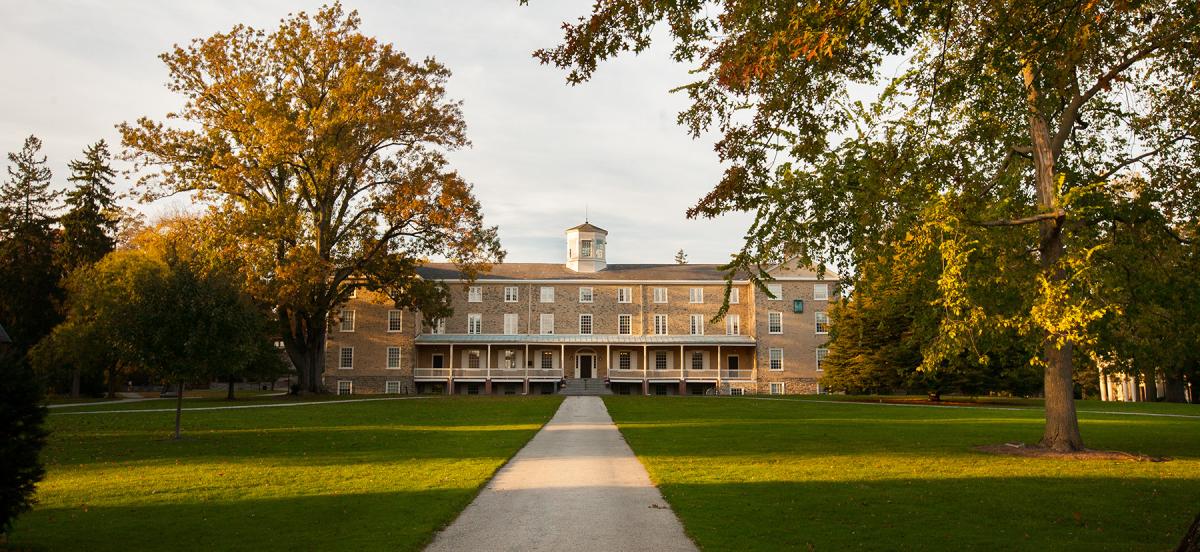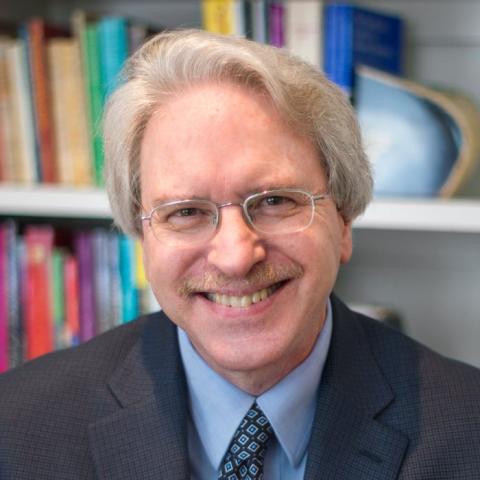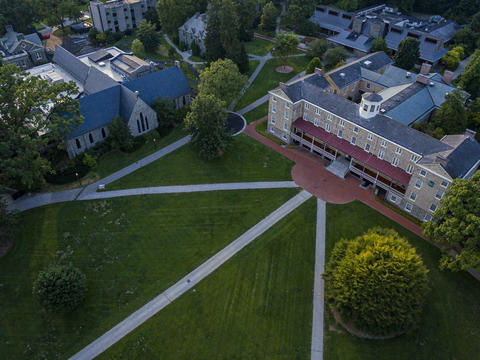From President Kim Benston

Photo by Michael Branscom
Details
Thoughts on our responses to the election.
Friends,
In the days since the election ended, I have been hearing members of our community express a wide range of thoughts and emotions, from shock, anger, and fear, to bewilderment, wary hope, and murmured satisfaction. Some people have been stunned into silence, reviewing their complex feelings and expectations as they listen intently to those of others. I was one of this latter group during the Quaker meeting on Wednesday, where I sat absorbing the thoughts so movingly expressed by a series of eloquent voices.
Now it is vital that I speak, but I must begin with a disclaimer, which you already know: my words will be unable to alter the cause of our vertigo. Our nation has made a top-speed political swerve, and millions of cries—of pain, of pleasure, and some of renewed hatred—are erupting around us. For those in pain, there's a natural tendency to seek reassurance from someone in putative authority. But, as you also know, there is no authority figure within reach who can prognosticate the fulfillment of either fears or hopes. While I cannot attempt to comprehensively address the thoughts and feelings of our whole community, I want to register their deep importance.
I respect the concerns of everyone on our campus. This does not mean that I must speak inauthentically or in platitudes; it does mean that I want, in whatever small way, to help us accommodate that full range of concerns. And above all, I want to offer a personal assurance that I will work unstintingly—with the wholehearted assistance of our dedicated staff and faculty—to sustain the safety and inclusivity of our campus.
Like so many of you, I see this moment in United States history as one that presses fundamental questions of ethics and purpose—including how to function as a society in which the most essential needs of all members can be heard and reconciled. Never in our collective memory has there been a more divisive election. Let me try to pinpoint a few indisputable causes of our national division that we can work against here at the College, perhaps with some wider ripples as well.
However each of us voted, it is incontestable that the president-elect ran a campaign fueled partly by racist innuendo, bigotry, and the rhetoric of “us vs. them” on many planes; we must therefore work all the more vigorously to maintain Haverford as an inclusive community and to fully realize the vision of our Diversity Plan. Also incontestably, Americans have elected a federal government whose majority party contains climate-change deniers and proponents of dismantling environmental safeguards; we must therefore reaffirm our foundational commitment to scientific inquiry and responsible thinking, and to the values and goals described in our Sustainability Plan. Overall, we have witnessed a campaign riddled by falsehoods and frequent indifference to evidence and fact; we must, then, freshly affirm the great importance of our mission as an institution devoted to educating the next generations of critical thinkers and ethical leaders.
With this strengthened sense of mission, we must also call upon our dedication to the highest ideals of mutual concern. I have unquestioning faith in this community's bedrock goodness, which draws upon compassion and kindness in every one of us. Within our community, certainly, are many distinct views of our national condition, and a diversity of political convictions. What binds us, though, is a commitment to one another's wellbeing. However we view the results of the election, we must understand that they have instilled in many people here a chilling sense of fear—fear for their own safety and futures, for those of their loved ones, for the survival of civil liberties in the United States, for the destiny of other societies, for the survival of the planet itself. For some here, there is a far less nightmarish but still palpable fear: that of social ostracism if they speak their more optimistic response to the election.
We have long taken pride in the fact that as national and global citizens, Haverfordians try to make the broader world less prone to destructive and hurtful actions. Right now, as members of our own community, we can ensure that all of us are free from threats stemming from dislike of our ideas, our beliefs, our words, our appearance, our sexualities, our relationships, our origins, or our cultural attachments. We can ensure that to walk onto Haverford's campus is to walk unafraid, to enter a place where disagreement arises in a context of mutual respect—where we indeed can grow from debate precisely because we speak with confidence in the inviolable dignity of all who come here.
For me, these are unmistakable features of Haverford, yet I am aware that these virtues require constant exercise. I am grateful to legions of you who have worked in recent days to enact these virtues among your friends and colleagues. Let us continue that effort to sustain a respectful, supportive, and open-minded community. Let us likewise affirm that there is both safety and value in the interaction of divergent voices. Throughout the rest of this year, I would like to facilitate opportunities for us to speak with one another about this era's pressing issues in an atmosphere of candor and mutual trust. We must not succumb to the crudity of the recent election season; neither must we succumb to an excessive self-censorship that shuts down true exchange. I believe that by undertaking frank, courteous, and sincere dialogue, we can experience ourselves as a strengthened community.
In meantime, let us continue to look out for one another. And let us be especially sensitive to those among us who are feeling truly endangered by the larger world's sudden and uncertain changes. We all have each other's back. Together we shall affirm that everyone in this community is deserving, and assured, of our concern.
Peace,
Kim




